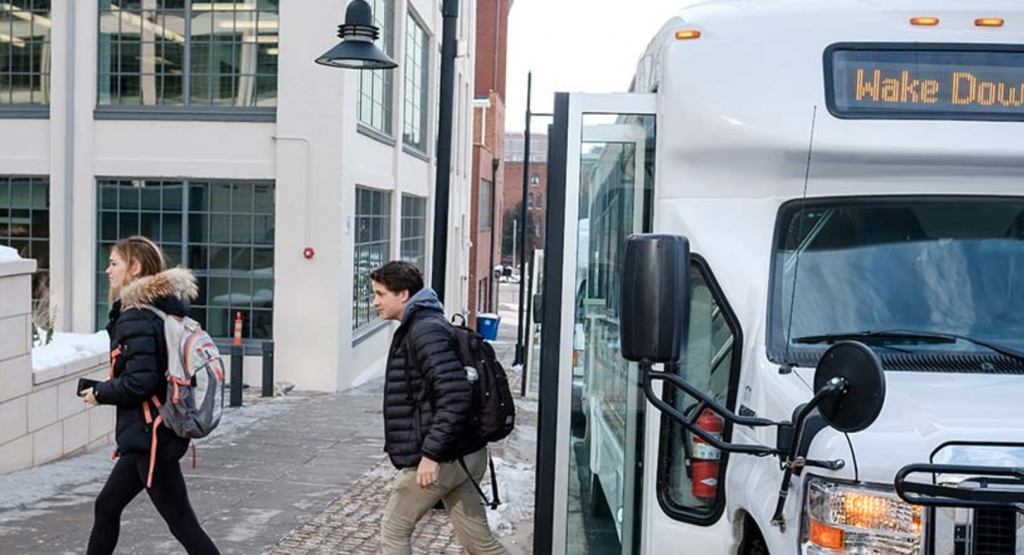Parking and Transportation Now Transportation and Parking Services

by Office of Sustainability Staff Writer Suzy Mullins (’18)
While Parking and Transportation may conjure anxieties about parking tickets and fees for some, the department’s new name reflects a different focus. According to WFU Transportation Manager Arian Bryant, the switch to Transportation and Parking Services highlights the importance of providing the Wake Forest community with a variety of convenient and alternative transportation options.
“In the past year, we have increased our fleet of shuttles from six vehicles to eleven,” says Bryant. In doing so, the department hopes to generate more effective and reliable transport to WFU satellite locations and Winston-Salem hotspots. Bryant also notes that the means of tracking shuttles has been updated for convenience and efficiency. “We are proud to have added the Transloc GPS system, which provides users with real-time access to bus routes and schedules.”
In terms of traveling beyond the vicinity of Winston-Salem, Transportation and Parking Services has partnered with the Piedmont Authority for Regional Transportation (PART) to increase the accessibility of carpooling and vanpooling options. Using the ride-matching service ShareTheRideNC, the Wake Forest population has access to a network of over 30 different companies and universities from which they can safely find a carpool partner(s).
Bryant shares that there are more exciting updates to come. “We are looking to add airport shuttle services to the mix by spring 2018, among other future services. All of our new changes and improvements are not only intended to give the Wake community more options for getting where they need to go, but also to increase our commitment to sustainability.”
The offerings complement university-wide programs that support alternatives to SOV or single-occupancy-vehicle travel (one driver in one car). Zipcar offers car sharing to those who choose not to bring vehicles onto campus but who still need access to a vehicle for unique trips. Additionally, the bike sharing program, Re-Cycle, offers a two-wheeled option by the hour or by the semester.
“Although some individuals would like to drive every inch of their routes and park at the front door of their destinations, this isn’t a realistic expectation in a changing world,” adds Dedee DeLongpré Johnston, the university’s chief sustainability officer. “Our students will graduate and enter a world of changing transportation infrastructure. For those who live and work in metropolitan areas, alternatives to SOV travel are the norm.”
To discover more about the department’s alternative transportation solutions, as well as transportation-related offerings, like electric vehicle charging stations, visit their website.
